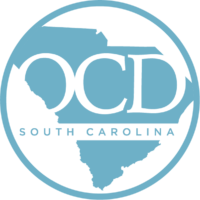Obsessive Compulsive Disorder is a serious mental health disorder affecting around 3 million adults and half a million children and teens. It is characterized by unwanted thoughts or obsessions followed by repetitive behaviors or compulsions.
Obsessions
Obsessions include unwanted thoughts, images, or urges that can be extreme or disturbing. These thoughts come and go and feel uncontrollable to the individual. Obsessions are often accompanied by uncomfortable feelings like doubt, uncertainty, fear, or the need for something to be “just right”.
Common Obsessions include:
- Contamination
- Losing Control
- Perfectionism
- Harm coming to others due to negligence
- Unwanted sexual or violent thoughts
- Religious Obsessions or “scrupulosity”
Compulsions
Compulsions are actions or behaviors a person uses to try to neutralize or rid themselves of certain obsessions or the distress accompanying the obsessions. Compulsions include physical acts like checking the door to ensure it is locked, mental acts like reviewing conversations to see if something one said was offensive, or avoidance of a frightening situation. Often people with OCD are able to recognize their compulsions do not relieve long-term discomfort, but continue to use them for short-term relief.
Common Compulsions include:
- Frequent, obsessive hand-washing and/or cleaning
- Frequent, obsessive checking (of the door, stove, etc.)
- Repeating
- Mental Compulsions (praying, counting, reviewing, etc.)
- Frequent, obsessive reassurance seeking
- Avoiding situations which may trigger obsessions
Learn more about specific subtypes of OCD here.
